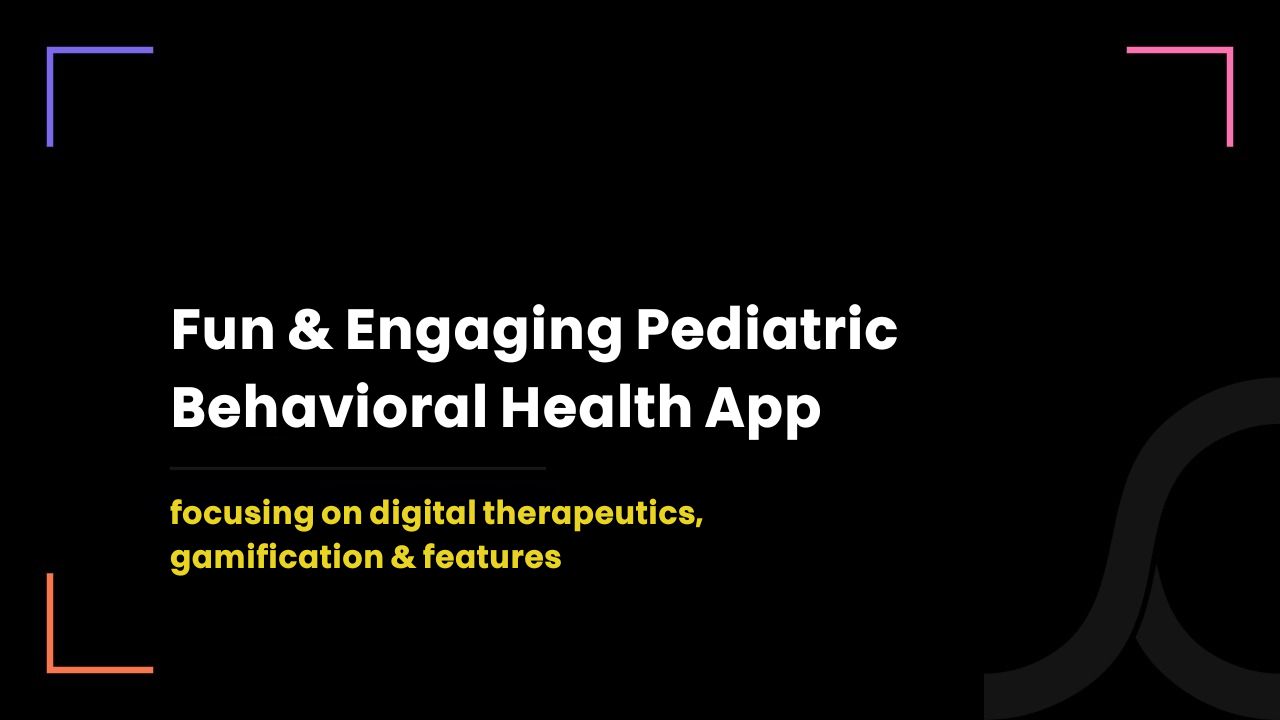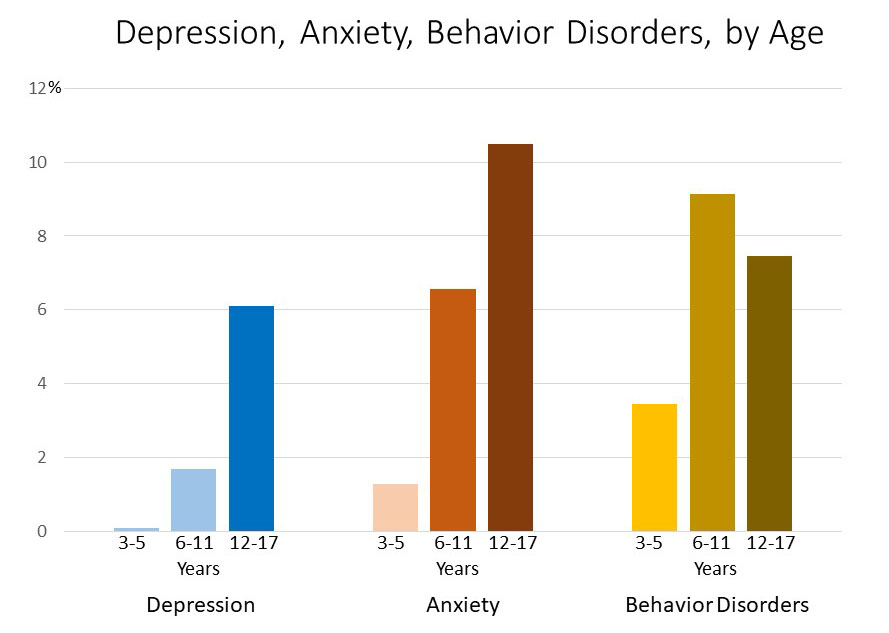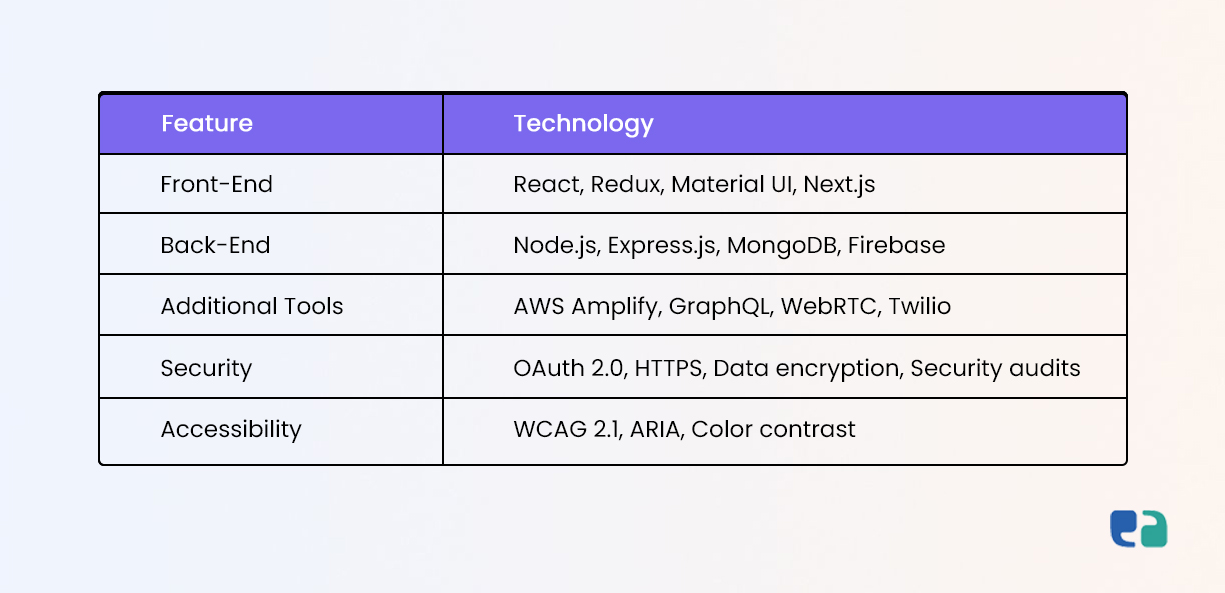Joon Health: Transforming Pediatric Behavioral Health Through Technology and Play

6 months ago
Children’s mental health is so important for their healthy development.
According to the CDC, 1 in 6 kids between 2 and 8 years old has a diagnosed mental, behavioral, or developmental disorder.
That’s a huge number!
It shows how much we need solutions that are easy to access and designed specifically for kids.
Traditional therapy is helpful but comes with its challenges.
Busy families often find it hard to schedule in-person sessions.
Plus, these sessions may not always keep young kids engaged.
When behavioral health issues go untreated, it can impact how kids perform in school, make friends, and feel about themselves.
That’s where digital therapeutics come in.
These tech-based tools offer flexible, accessible, and fun treatment options.
They fit right into a child’s daily routine. And adding game elements (known as gamification) can make therapy more engaging for kids.
A great example is Joon Health, a behavioral health platform designed for children with ADHD.
It helps kids build healthy habits while showing how tech can improve pediatric mental health care.

Joon Health: A Game-Changing Approach to ADHD Therapy

Co-founder Isaac Eaves highlights a big problem: the current system mainly offers therapy and medication for kids with ADHD.
This limits the options for parents. Traditional therapy often requires in-person sessions, which can be hard for busy families to manage.
Plus, many kids find it tough to connect with regular therapy methods.
That’s where Joon Health comes in. It provides a fresh solution with digital therapeutics.
By using gamification, Joon makes therapy easier and more fun for kids.
Since launching in 2022, Joon has seen amazing growth. It now has over 500,000 users and 18,000 paying subscribers.
This shows there’s a strong need for engaging and flexible therapy options.
By turning therapy goals into interactive games and challenges, Joon motivates kids to get involved in their treatment.
This makes the whole process more enjoyable and effective.

3 Key Takeaways from Joon Health: A Model for Pediatric Behavioral Health Platforms
1. User-Centric Design
Talking to users is key to making something valuable.
Joon Health gets this right by chatting with 2-3 parents daily for feedback.
This helps them ensure the platform meets user needs.
Listening and adapting based on feedback should be central to building any platform.
2. Gamification and Motivation

Joon Health makes therapy fun by using game elements to motivate kids with ADHD.
They turn therapy goals into interactive games, making the process enjoyable.
Kids earn rewards, like leveling up their virtual pet, by completing real-life tasks like chores or homework.
This connection between real-life achievements and game rewards makes reaching goals exciting.
Gamification is powerful, but it’s crucial to use it wisely, connecting game mechanics with real-life benefits.
3. Clinician Integration
Joon Health includes clinicians in the platform. They help turn treatment goals into fun tasks.
Clinicians can set personalized goals, and the platform translates these into game steps.
This makes treatment plans tailored to each child.
Joon also provides tools for clinicians to track progress and adjust plans as needed.
By combining technology with clinical expertise, developers can create effective, personalized care for each child.

Technology Focus: 3 Essential Features for Your Platform
1. Gamified Task Management System
Imagine turning therapy goals into fun quests!
For instance, a clinician could create a "Morning Quest" to help a child improve their morning routine.
Tasks like waking up, brushing teeth, and eating breakfast become part of the quest.
Each completed task earns rewards like points or virtual items for their pet.
In Joon, kids take care of a virtual pet called "Doter," making the process exciting and motivating!
2. Parent/Caregiver App
A parent app is vital for keeping caregivers involved. It should let parents:
- Track Progress: See what tasks their child has completed and where they might be struggling.
- Manage Tasks: Add family activities or chores to the child's list, making it easy to fit into daily life.
- Communicate with Clinicians: Message clinicians directly for updates or questions.
The app needs to be user-friendly and accessible on different devices, making it easy for parents to understand.
3. Clinician Dashboard
Clinicians need a powerful dashboard to provide personalized care. It should allow them to:
- Set Individualized Goals: Use SMART goals tailored to each child’s needs.
- Track Progress: Monitor engagement and identify successes or challenges.
- Generate Reports: Create reports on progress to share with parents and educators.

Additional Features for Your Platform
1. Progress Tracking: Dashboards for parents and clinicians to view each child's progress over time.
2. Custom Profiles: Kids can create personalized avatars and themes to foster engagement.
3. Community Support: Forums or chat groups for sharing tips and encouragement.
4. Educational Resources: A library of articles and activities about ADHD and coping strategies.
5. Reminders: Notifications for task completion and medication schedules.
6. Gamified Challenges: Weekly challenges and leaderboards to motivate kids.
7. Multilingual Support: Accessibility for non-English speaking families.
8. Parent Workshops: Virtual sessions on ADHD management and platform features.
9. Wearable Integration: Connect with fitness trackers to monitor activity and sleep.
10. Personalized Content: Use AI to tailor game challenges based on user performance.
11. Rewards System: Incentives for both kids and parents when milestones are reached.

Top 3 Mobile App Development Options for the Pediatric Behavioral Health Platform
Choosing the right development approach is key to creating a standout pediatric behavioral health platform.
Here are three options tailored for your project, each catering to different needs and budgets:
1. Native Mobile App Development
Native apps deliver superior performance and flexibility, which is vital for engaging young users.
However, developing separate codebases for Android and iOS can increase costs.
Typically, these apps use languages like Java, Python, and Flutter for Android, while Swift is used for iOS.
This approach is perfect if you prioritize a high-quality user experience.
2. Cross-Platform Mobile App Development
For a more cost-effective and quicker solution, consider cross-platform development.
This method allows you to create a single codebase that works on both Android and iOS, ensuring scalability and flexibility.
Utilizing Kotlin can enhance user experience across platforms while saving time and resources during development.
3. MVP Web and Mobile App Development
An MVP (Minimum Viable Product) approach is a great way to launch your ADHD app swiftly and economically.
By starting with a basic version, you can keep initial costs low while gathering invaluable user feedback for future enhancements.
This iterative process ensures your app evolves based on real needs, aligning closely with user expectations.
Your choice depends on your goals, budget, and timeline.
Working with healthcare IT experts will help you create an ADHD app that meets the unique needs of children and supports families on their journey.

